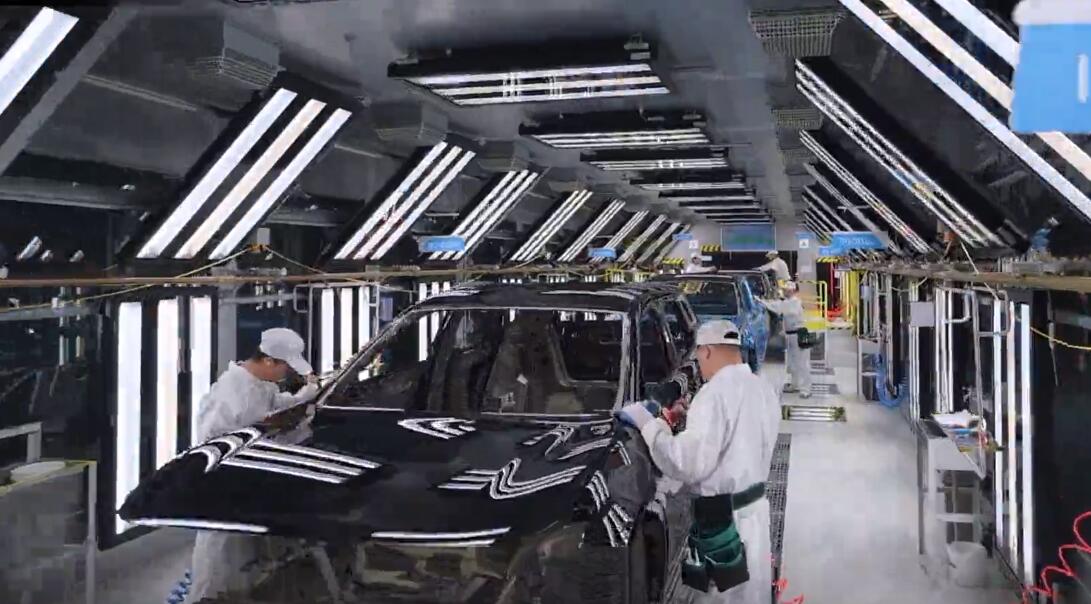Geely is in the early stages of planning its entry into Thailand's EV market, including weighing imported and locally made models, Reuters reported.

(A car displayed by Geely's Livan brand at the Shanghai auto show in April 2023. Image credit: CnEVPost)
Thailand is a key stop for Chinese automakers as they expand internationally, with Geely reportedly becoming the latest to target that Southeast Asian market.
Geely is in the early stages of planning its entry into Thailand's electric vehicle (EV) market, including weighing imported and locally built models, Reuters reported today, citing two people familiar with the matter.
Considerations include whether to sell entry-level EVs in Thailand, as well as an electric pickup truck under its new Radar brand, the people said.
Thailand's Board of Investment held discussions with five major Chinese automaker makers, including Geely, during a road show in China in April, the report said, citing Narit Therdsteerasukdi, the board's secretary general.
The other companies are BYD, Changan Automobile, JAC Motors and Jiangling Motors, according to the report.
Discussions with Geely have faced additional complications because the company has given working-level autonomy to brand-level operating groups such as Geometry and Radar, the report said, citing a person familiar with the matter.
Geely needs to decide what models to bring to Thailand, and its review includes the possibility of building a plant in Thailand, according to the report.
Geometry, an EV brand Geely launched in 2019, sold 57,877 units in the January-April period, up 73.54 percent year-on-year, according to data monitored by CnEVPost.
Radar, Geely's outdoor lifestyle brand unveiled in July 2022, launched its first model, the RD6 electric pickup, in China in November 2022.
The Thai government's goal is that EV production is expected to account for 30 percent of total vehicle production by 2030.
The country hopes to become a major EV hub in Southeast Asia, which provides an opportunity for Chinese automakers.
On March 10, BYD broke ground on its plant in Thailand, when the company held a ceremony to deliver the 9,999th and 10,000th BYD Atto 3s.
BYD's plant is expected to start production in 2024 with an annual capacity of about 150,000 units.
Hozon Auto's brand Neta also broke ground on a plant in Bangkok, Thailand, on March 10, which will be its main manufacturing base for building right-hand drive electric vehicles for export to ASEAN.
In addition to car companies, major suppliers in China's EV industry chain are also targeting the Thai market.
Gotion Singapore, a wholly owned subsidiary of Volkswagen-backed Chinese power battery giant Gotion High-tech, signed an agreement with Thailand's Nuovo Plus Company Limited on December 15, 2022, to set up a joint venture, according to a bourse announcement at the time.
The two parties plan to establish a joint venture company, NV Gotion Co Ltd, in Thailand to build a power lithium-ion battery pack production base, according to Gotion's announcement.
On May 13, 2022, CATL announced that it had signed a strategic cooperation memorandum with Thailand's Arun Plus to cooperate on battery-related businesses in the ASEAN region.
On May 3 of this year, a Reuters report said that Thailand was in talks with CATL and other battery manufacturers to build production facilities in the Southeast Asian country.
Geely Holding becomes 3rd largest shareholder of Aston Martin, increases stake to 17%



